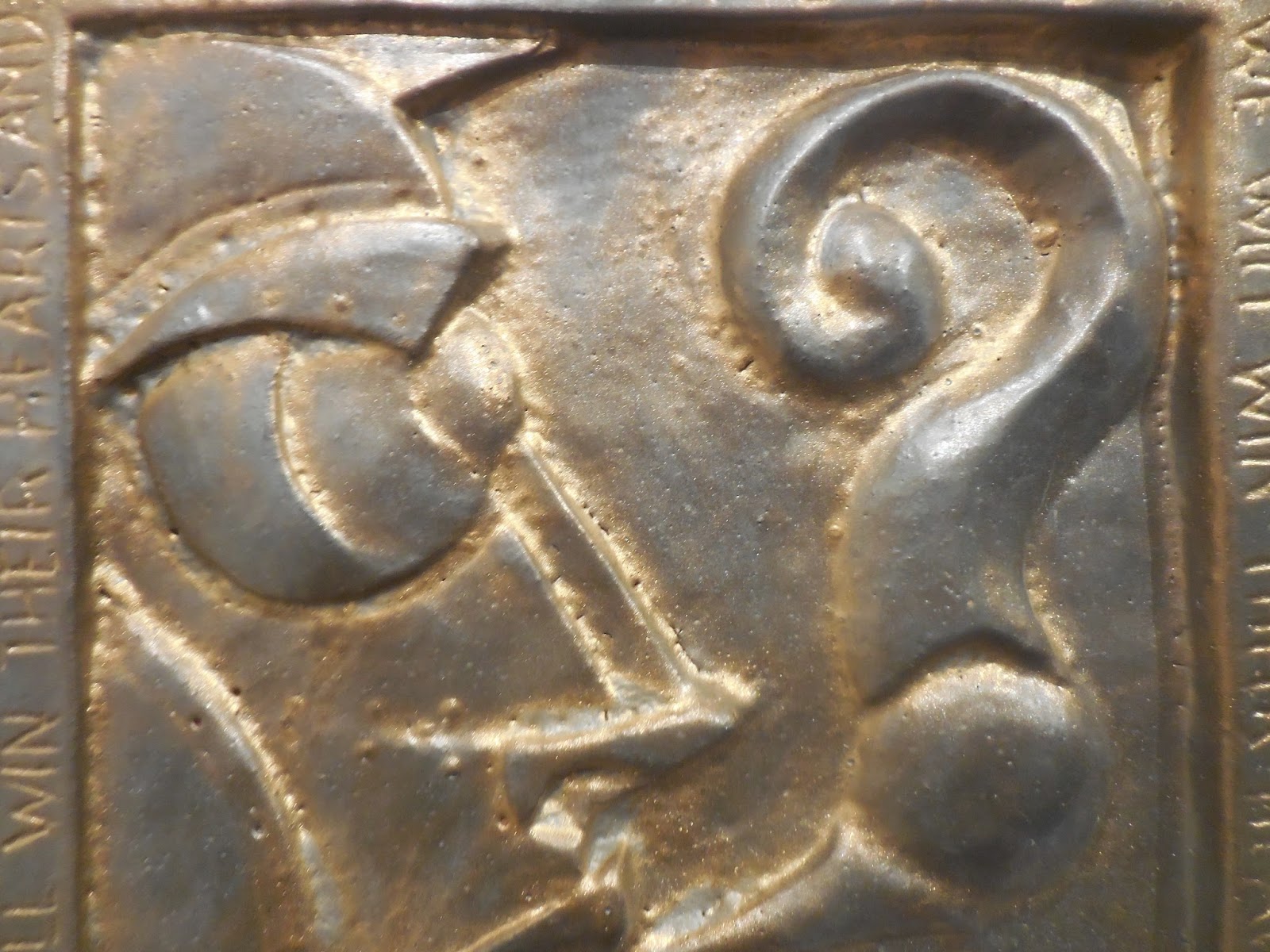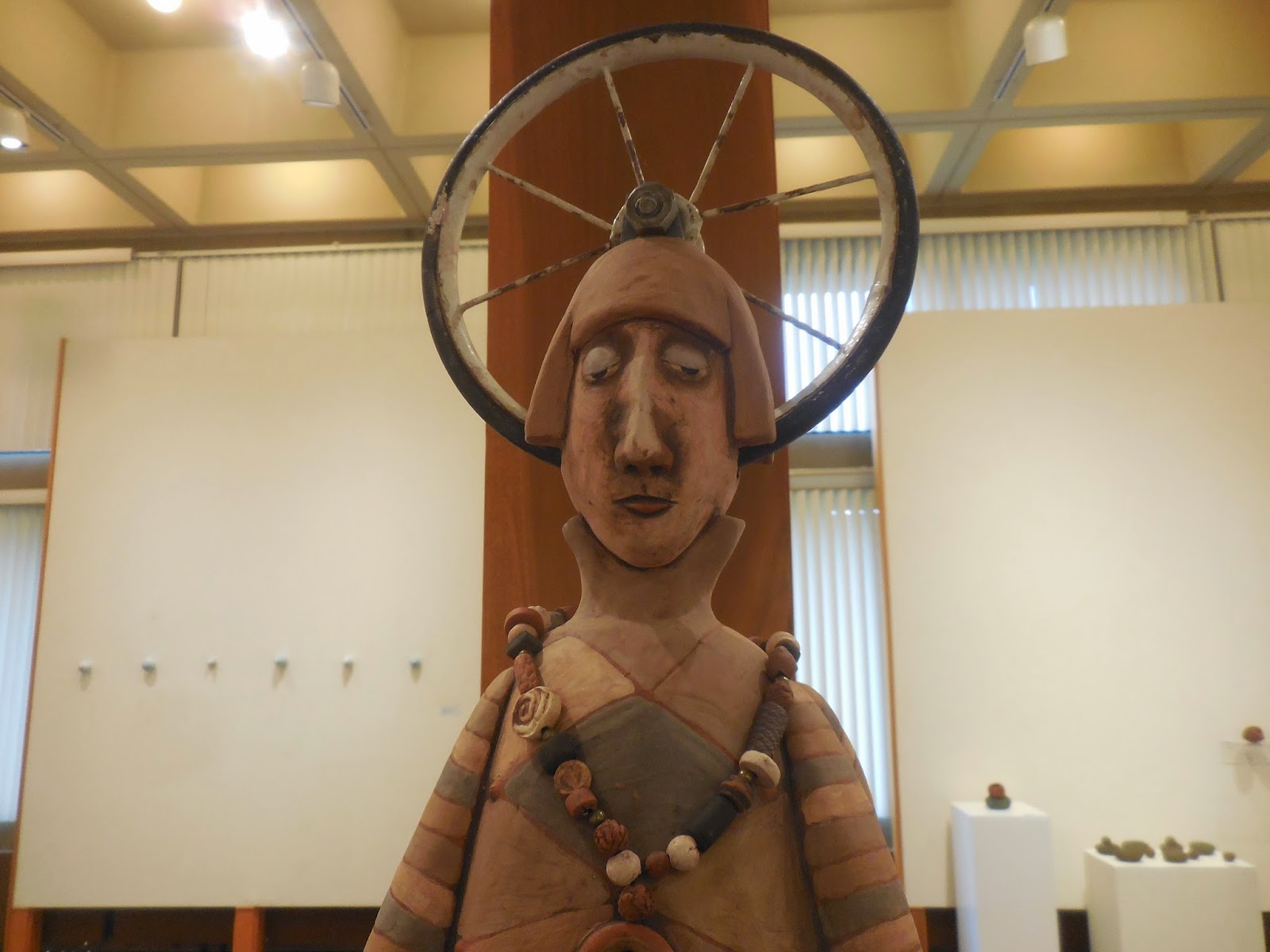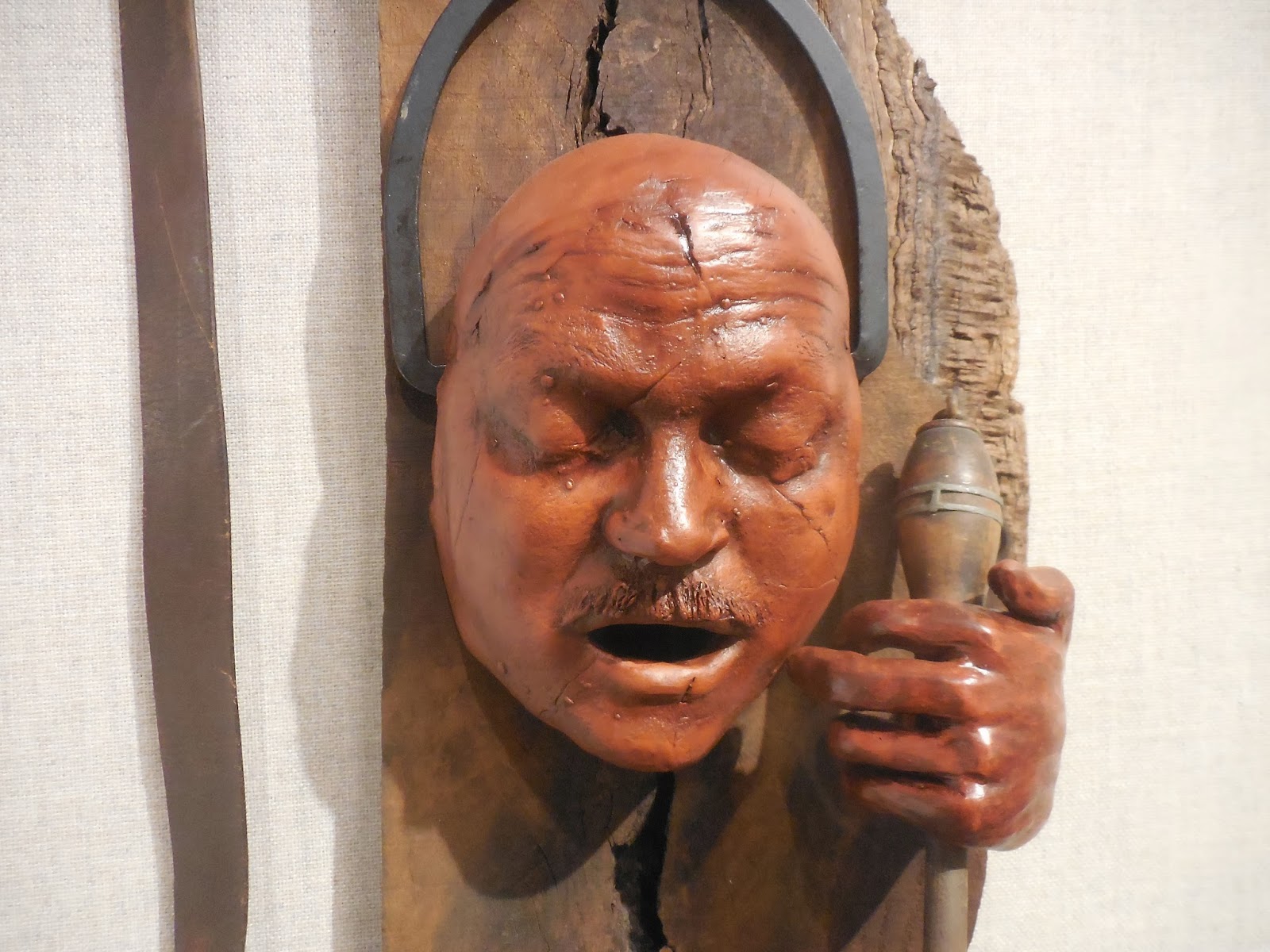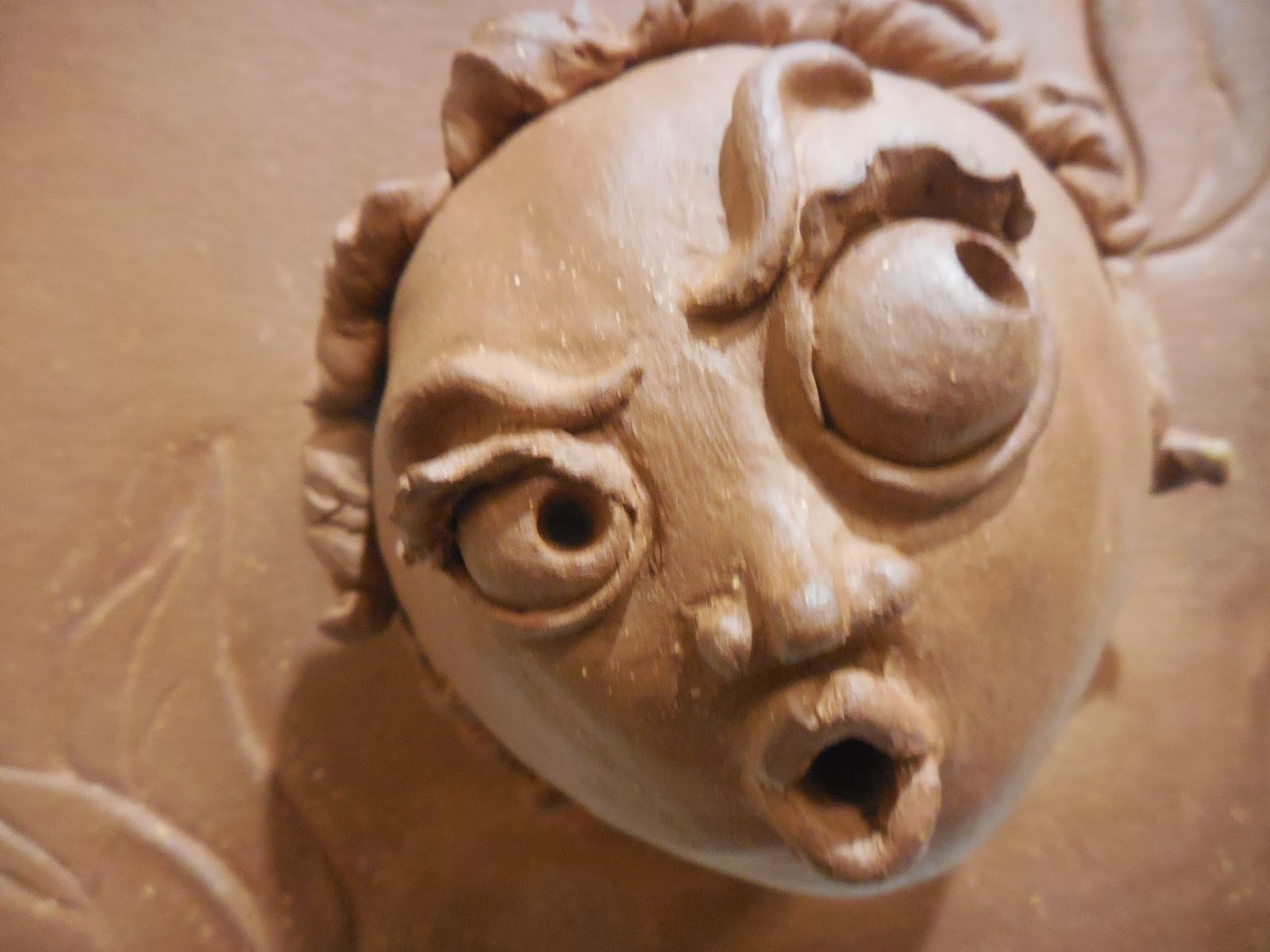Mobility of peoples and cultures is a fact of our modern
world and yet in this freedom of movement there is a problem. “People living in
ethnically diverse settings appear to ‘hunker down’ – that is, to pull in like
a turtle,” an eminent political scientist has found. Robert D. Putnam,
Professor of Public Policy at Harvard University, conducted a massive new study based on
detailed interviews of nearly 30,000 people across the United States of America.
He found that those in more diverse communities tend to “distrust
their neighbors, regardless of the color of their skin, to withdraw even from
close friends, to expect the worst from their community and its leaders, to
volunteer less, give less to charity and work on community projects less often,
to register to vote less, to agitate for social reform more but have less faith
that they can actually make a difference, and to huddle unhappily in front of
the television.” [1]
As my nephew, studying at a university in Norway, recently observed (but in a
different context), “Nobody has time for anybody anymore.” [2] Is that the way
modern life is? U.S. Army Sgt. 1st Class Max Voelz and his wife, Staff Sgt. Kim
Voelz both served in Iraq
in explosive ordinance disposal, the Army’s elite bomb squad. Husband Max said
of his wife:
“We deployed in 2003. We were in
the same unit. And she ripped bombs apart by hand in Iraq just like I did. But she died
on an incident that I sent her on. . . . And when I receive a condolence letter
from a high-ranking government official that says Mrs. Voelz, we’re sorry for
the loss of your husband, it just makes it seem like nobody knows we exist.”
[3]
Then Max turned to another bomb tech, Sgt. Mary Dague, for
support. She had lost both her arms in Iraq. During his low points they
talked a lot over the internet. StoryCorps had them meet face-to-face for the
first time and to talk about what happened:
DAGUE: Why did
you first contact me?
VOELZ: I was in
a pretty dark spot at the time. And another bomb tech thought that talking to
you would help. And it did.
DAGUE: I
remember it took a while to get you to talk.
VOELZ: Yeah,
then I wouldn’t shut up.
DAGUE: I’m OK
with that. I really just wanted to reach through the computer and hug you. Like
it’s OK – well, it’s not OK, but it’ll get better.
VOELZ: Yeah.
DAGUE: You do
seem a lot happier.
VOELZ: I’m glad.
(Laughter) I am. I mean, I’m always going to have the can’t sleep and the
nightmares. But basically, you have a gift of helping people who are depressed.
[4]
• The dual nature of humanness
According to the Bible, humanness has a two fold nature: God
created us to be other-centered, and yet we inherit a selfish nature from our
first human parents, who rebelled against God. Genesis 1:26-27 teaches:
Then God said, “Let us make man in
our image, after our likeness. . . .”
So God created man in his own
image,
in the image of God he created
him;
male and female he created them.
“God” (Elohim) is a plural noun and yet “said” is a singular
verb. Here God said, “Let us … in our . . . after our . . .” In the fullness of
God there is singularity and yet there is also fullness of relationship. When
Jesus Christ came to earth, this seed of truth became understood. There is one
God and in his fullness there are three persons – God the Father, the Lord Jesus
Christ, and the Holy Spirit of God.
In addition, the original man and woman (who were husband
and wife) rebelled against the Lord God (Genesis chapter 3) and, as a result,
gave birth to children in their selfish image who lived selfish lives (Genesis
chapter 4). But God in mercy began a rescue mission that culminated in sending
his Son to be the Savior of the world.
• A new society
In 1 Thessalonians chapter one, certain people out of the
200,000 inhabitants of ancient Thessalonica have turned from idols (false gods
and philosophies) to the true and living God. Although consisting of various
minorities, they were mostly Greeks. The people who have “turned” now have an
other-centered relationship with our God and Father, our Lord Jesus Christ (who
died for our sins and rose again) and with the Holy Spirit (whose power and joy
accompany the Word of God being proclaimed). The action of God has created a
body of people who are united to Christ and endowed with the Holy Spirit. In 1
Thessalonians 5:12-22 these people are enjoined to be have regard for their
leaders (5:12-13), act responsibly to others (5:14-15), have reverence towards
God (5:16-18) and receive the prophetic word of God (5:19-22).
If we have joined this company of people and become part of
the body of Christ, how do we live other-centered lives? How can we lay aside
self-centered living and care about others? 1 Thessalonians 5:13b-15 gives us guidelines:
13bBe at peace among
yourselves. 14And we urge you, brothers, admonish the idle,
encourage the fainthearted, help the weak, be patient with them all. 15See
that no one repays anyone evil for evil, but always seek to do good to one
another and to everyone.
“Among yourselves”
(5:13b). This is not a utopian society ruled by elites, governed by
stability and austerity, and enforced by totalitarian rule. This is a spiritual
reality of people whose lives have been changed by the action of the triune God.
They have been joined to a mystical body and are bound by voluntary
selflessness. St. Paul the apostle wrote 1
Thessalonians from Corinth
about AD 50. Later he explained this truth more fully in 1 Corinthians, written
from the neighborhood of Ephesus
in early AD 55:
12For just as the body
is one and has many members, and all the members of the body, though many, are
one body, so it is with Christ. 13For in one Spirit we were all
baptized into one body—Jews or Greeks, slaves or free—and all were made to
drink of one Spirit.
14For the body does not
consist of one member but of many. 15If the foot should say, “Because
I am not a hand, I do not belong to the body,” that would not make it any less
a part of the body. 16And if the ear should say, “Because I am not
an eye, I do not belong to the body,” that would not make it any less a part of
the body. 17If the whole body were an eye, where would be the sense
of hearing? If the whole body were an ear, where would be the sense of smell? 18But
as it is, God arranged the members in the body, each one of them, as he chose. 19If
all were a single member, where would the body be? 20As it is, there
are many parts, yet one body.
21The eye cannot say to
the hand, “I have no need of you,” nor again the head to the feet, “I have no
need of you.” 22On the contrary, the parts of the body that seem to
be weaker are indispensable, 23and on those parts of the body that
we think less honorable we bestow the greater honor, and our unpresentable
parts are treated with greater modesty, 24which our more presentable
parts do not require. But God has so composed the body, giving greater honor to
the part that lacked it, 25that there may be no division in the
body, but that the members may have the same care for one another. 26If
one member suffers, all suffer together; if one member is honored, all rejoice
together. (1 Cor 12:12-26 ESV)
Thus, biblical peace in the new society is not simply harmony among disparate
peoples (nationalities and cultures) and the absence of hostility (1 Cor
12:13). But it incorporates the ideas of living out one’s vocation as a member
of the body, human flourishing, wholeness, contentment and delight as we live
in fellowship with our Creator and Savior and with each other. [5]
“Be” (5:13b, “be
at peace” is one word in the original Greek).
As those living in community, Christ the Lord through his apostle commands us (through
a series of imperatives) to adopt an other-centered outlook. This is a duty and
must be a conscious decision. “You have turned from false gods and philosophies
to the true God and the true doctrine and philosophy of life. You have been united
by the Holy Spirit into the body of Christ. Now live that way.” The appropriate
responses include: “This I will do.” “This is my prayer.” “This is my aim,
objective, and goal.” “This I will do today and each day by the Lord’s strength.”
To sweep in the thought of verses 14-15, the Scripture is saying: Don’t slip
into a shell of indifference, isolation, and idleness. Don’t allow yourself to become
passive and complacent. Pray for strength. Be courageous. Take action. Look
around. Let your light shine. Live out the truth of community. Let there be
brotherly love. Reach out. Love your neighbor as yourself.
• Other-centered living
There are seven areas of focus.
(1) “Be at peace
among yourselves” (5:13b). The Gospel is the gospel of peace – peace with
God through our Lord Jesus Christ (Rom 5:1). It makes no sense for the Gospel
of peace to be laced with the toxins of strife and ill-will, for the Gospel of
reconciliation to be diluted with the vitriol of enmity and hostility, and for
the Gospel of love to be poisoned with the venom of hate and bitterness. There
can be strong disagreements among brothers and sisters in the Lord. But there
are amiable ways to disagree and go on. Paul and Barnabas proclaimed the Gospel
together throughout Syria, Cyprus and Asia Minor and then reported back to
the Church of Antioch, which had sent them. They disagreed
sharply on whether to take John Mark (who had abandoned the work on the first
journey) with them on the return visit. So Barnabas took John Mark and Paul
took Silas, and they took separate routes at different times. Yes, the teams
worked separately, but both stayed friends and both were a blessing to the
newly founded churches (Acts 15:36-41).
(2) “Admonish the
idle” (5:14). “Admonish” (Greek noutheteo)
can convey various ideas: warn, counsel, reprimand, verbally confront. It is
tempered by the earlier command of “be at peace” and therefore may stated as “peacefully,
lovingly confront” someone. It emphatically does not mean, “get in the face of
someone and start screaming.” The term “idle people” originally described a
soldier who had left (quit) the ranks or who had been guilty of unruly conduct (had
quit acting by the rules required of soldiers). In the papyri found in Egypt
contemporary with the New Testament, the word had the meaning of “idlers”
(people who had quit working, that is, were being lazy). Thus, the phrase means
“warn the quitters” and could apply to a variety of circumstances.
(3) “Encourage the
fainthearted” (5:14). “Encourage” (Greek paramutheomai) conveys the ideas of “console, comfort; encourage,
cheer up.” “Fainthearted” (Greek oligopsukos,
literally “little souled") refers to being “fainthearted, timid, apprehensive, discouraged.”
A gloomy disposition or jarring circumstances may cause someone to feel timid,
apprehensive, or down in the dumps. It is our job to encourage the discouraged.
Worldly wisdom paints a different picture from
1Thessalonians. Bertrand Russell (1872-1970), the British philosopher who in
1950 was awarded the Nobel Prize in Literature, wrote:
Man is the product of causes which
had no pre-vision of the end they were achieving; that his origin, his growth,
his hopes and fears, his loves and his beliefs, are but the outcome of
accidental collocations of atoms. There is no fire, no heroism, no intensity of
thought and feeling which can preserve an individual life beyond the grave. . .
. Only within the scaffolding of these truths, only on the firm foundation of
unyielding despair can the soul’s habitation henceforth be safely built. [6]
To the contrary, spurred by the Letter of 1 Thessalonians,
we carry on the work of faith, the labor of love and the steadfastness of hope
in union with our Lord Jesus Christ. Endowed with the Word of God and the
Spirit of God, we have turned from false gods and false philosophies, we have –
at the same time – turned to the living God, and we wait for his Son from
heaven (1 Thess 1:3,9-10). On our pilgrim way we encourage the timid, give
confidence to the apprehensive, and cheer up the discouraged (1 Thess 5:14).
(4) “Help the weak”
(5:14). “Help” (Greek antexomai) means
“cling to, hold firmly to, be loyal to, help.” “Weak” can refer to various
kinds of weakness: emotionally weak, infirm in body, or not having a fully
informed Christian conscience (Rom 14:1 – 15:13). William Barclay, a New
Testament scholar of an earlier era, explains the image of clinging to the
weak:
Instead of letting the weak
brother drift away and finally vanish altogether, the Christian community
should make a deliberate attempt to grapple him to the Church in such a way
that he cannot escape. It should forge bonds of fellowship and persuasion to
hold on to the man who is likely to stray away. [7]
In addition to the primacy of faith, clinging to the weak
could involve various kinds of spiritual, emotional and physical support.
(5) “Be patient with
them all” (5:14). Literally, the
Greek reads “be patient with all.” It means to be patient with the three
previous categories of persons but also with everyone in the body of Christ. “Be patient”
(Greek macrothumeo) was wonderfully
translated by William Tyndale as “be long suffering.” It is a characteristic of
God (Isa 57:15 Septuagint; Rom 2:4; 9:22; 1 Pet 3:20; 2 Pet 3:9). If God has
exercised such great patience and longsuffering with us, how much more ought we
to have patience and longsuffering to others. It is our calling.
Former pro football star and coach Tony Dungy told the
following story about his father’s Christian character:
My dad was usually a quiet,
thoughtful man. A scientist at heart and by training, Wilbur Dungy loved to be
outside, enjoying the scenery. Fishing allowed him time to contemplate, to
listen, and to marvel at God’s creation. My dad used fishing to teach his
children to appreciate the everyday wonders of the world God created—the sandy
shoreline, the dark, pine forests, the shimmering water, and the abundant
wildlife. The lessons were always memorable, whether we caught a lot of fish or
not.
Although we fished countless times
together throughout our lives, one particular day stands out in my mind. It was
a summer day in 1965. Summers in Michigan
are beautiful, with comfortable temperatures and clear, blue skies. I was nine
years old, and my brother was five. My dad had taken us fishing at one of the
many small lakes around Jackson.
On that day, my dad was teaching my brother and me how to cast. We were both
working on it, mostly in silence, until my dad’s voice finally broke a period
of stillness.
“Hey, Linden, don’t move for a minute, please.” I
looked back and watched my dad move his hand toward his face. Calm and
deliberate, he continued to speak.
“Now, Linden, always make sure
that you know not only where your pole is when you’re starting to cast”—at this
point, I realized my dad was working my brother’s hook out of his own ear— “but
also make certain that you know where everyone else is around you.”
I learned something about proper
casting that day, but I also learned something about patience. Years later,
when I got hooked myself, in my hand, I realized how much it hurts. Remembering
my dad’s patience that day when Linden’s
hook was caught in his ear, I finally understood the importance of staying calm
and communicating clearly. [8]
(6) “See that no one
repays anyone evil for evil” (5:15). Revenge can be taken in grotesque,
horrible ways as well small, subtle ways. An often repeated anecdote from the
Korean War illustrates the subtle form:
During
the 1950’s Korean Conflict, six American GI’s were assigned to a housing unit.
Fighting had calmed down, so they found themselves living in close quarters
with extra time on their hands.
Predictably,
they soon started playing practical jokes on each other…sneaking up on each
other, rubber snake tricks, etc.
Quickly
tiring of these games, they started pulling these little pranks on their
houseboy Wan. They liked this good natured Korean boy - happy to have the job - and
figured they’d include him in their practical jokes.
They
would tie his boots together while he was sleeping and make loud clanging
noises with their mess kits. Wan would jump up, thinking the enemy was
attacking, and fall right on his face. Ha Ha!
They’d
hang a bucket of water above his door and place a tripcord in the threshold.
Then, they would call Wan into the room, and watch him get drenched.
One
day the soldiers were sitting around drinking, and someone commented that Wan
seemed a little down. They quickly realized that the cause of Wan’s depression
was the practical jokes they had been playing. They had only meant to make him
feel included, but obviously he only felt humiliated. The soldiers apologized
and promised never to do it again.
Wan’s
quick reply was “OK, GI…then I’ll stop spitting in your soup.” [9]
It is not wrong to use the protection of law and the court
system. St. Paul
the apostle did so (Acts 23:12-35; 25:1-12). But the Lord Jesus strictly
forbids personal revenge: “You have heard that it was said, ‘An eye for an eye
and a tooth for a tooth.’ But I say to you, Do not resist the one who is evil.
But if anyone slaps you on the right cheek, turn to him the other also” (Matt
5:38-39).
(7) “Always seek to
do good to one another and to everyone” (5:15). Literally, “always pursue the
good with-a-view-to one-another and with-a-view-to all.” “Pursue” means to
actively seek after, strive for, follow, run after. “Good” is that which is
upright, just, kind, generous, useful, beneficial, sound. It is not only our
calling to live at peace with one another but also to strive after and seek out
the good of all people. The truth of the Gospel (the tremendous goodness and
kindness and mercy of God to us sinners through Christ) translates into a life
of voluntary selflessness that seeks to show goodness and kindness and mercy to
others. A proverb of India
says, “You don’t cut off a person’s nose and then give him a rose to smell.”
Professing the Gospel and displaying evil words, emotions, and conduct is a
contradiction in terms.
Getting good at anything takes long hours of disciplined
practice. Through the Gospel, the goodness of God – of Father, Son, and Holy
Spirit – has been made ours. Our turning away from false gods and philosophies
has caused us to turn to the living God and follow the way of Christ the Lord. Each day
provides a new opportunity to come out of our shells of indifference,
isolation, and idleness and to actively practice the Gospel as members of the
New Society, the Body of Christ. Practice peace. Kindly confront quitters.
Encourage the fainthearted. Help the weak. Be patient with everyone. Never
retaliate. Seek the good of all.
[1] Michael Jonas, “The
Downside of Diversity,” The Boston Globe, August
5, 2007.
http://www.boston.com/news/globe/ideas/articles/2007/08/05/the_downside_of_diversity/?page=full
[2] David Lund, Facebook post
11/9/2014. His context is different than this essay. He was discussing the
fruits of a high amount of state control in a society.
[3] “Bomb Techs Work Through ‘Dark
Spots’ To Brighter Lives,” NPR Morning Edition, November 07, 2014. From the
transcript.
http://www.npr.org/2014/11/07/362010372/bomb-techs-work-through-dark-spots-to-brighter-lives
[4] Ibid.
[5] See further I’Ching
Thomas, “Jesus: The Path to Human Flourishing,” Just Thinking, June 20, 2014. http://www.rzim.org/just-thinking/jesus-the-path-to-human-flourishing/
[6] Bertrand Russell cited in
Bruce Narramore and Bill Counts, Freedom
from Guilt (Eugene, OR: Harvest House Publishers, 1974), p 42.
[7] William Barclay, 1 Thessalonians (Daily Study Bible), Edinburgh: St. Andrew
Press, 1975.
http://www.studylight.org/commentaries/dsb/view.cgi?bk=51&ch=5
[8] Wess Stafford, Just a Minute (Chicago: Moody Press, 2012), pp. 73-74.
[9] John Patrick Dolan,
“Spitting in Your Soup,” Negotiate like the Pros (blog), n.d.
http://negotiatelikethepros.com/spitting-in-your-soup/
Art work: (head with hands) Diana
J. Bjel, “Angel and the Pig”; and (face looking at curled object) William
Brouillard, “Steam Punk Portrait Tile #5” - both part of the exhibit “CLAY . .
. Not the Usual Suspects,” the Gallery, Lakeland Community College, Kirtland,
Ohio, September 25 to November 7, 2014.













